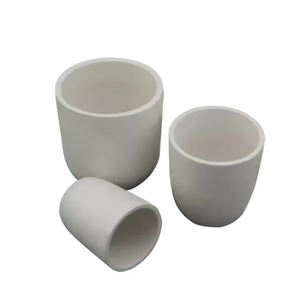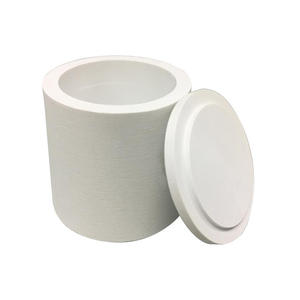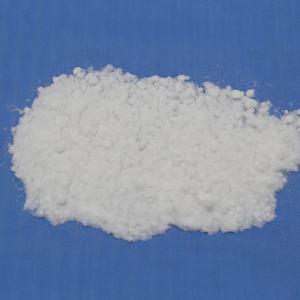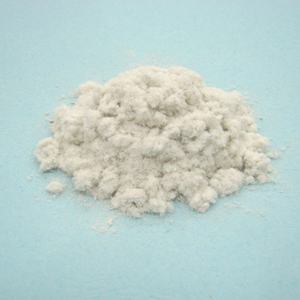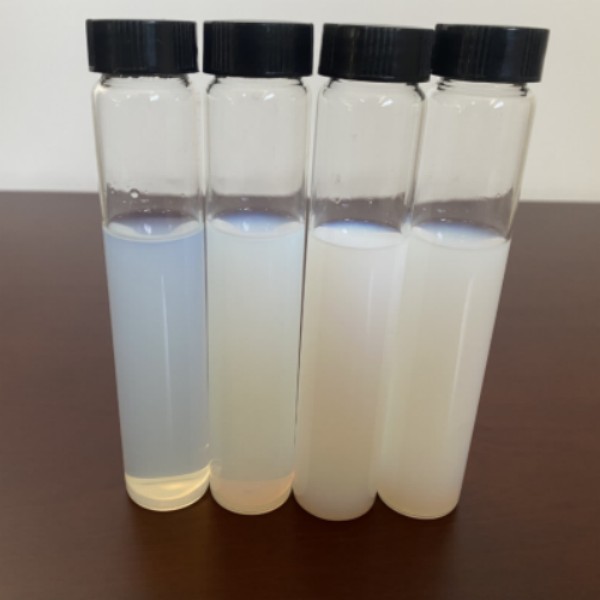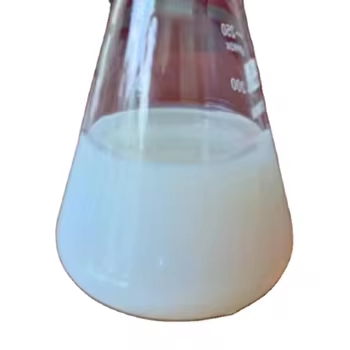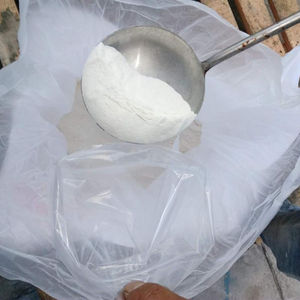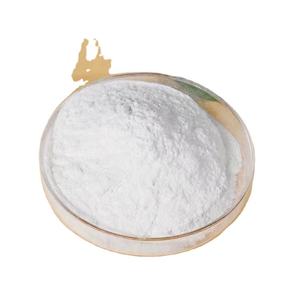Quartz Crucibles: High-Purity Silica Vessels for Extreme-Temperature Material Processing alumina cost per kg
1. Structure and Architectural Features of Fused Quartz
1.1 Amorphous Network and Thermal Security
(Quartz Crucibles)
Quartz crucibles are high-temperature containers made from integrated silica, a synthetic form of silicon dioxide (SiO TWO) derived from the melting of all-natural quartz crystals at temperature levels surpassing 1700 ° C.
Unlike crystalline quartz, merged silica possesses an amorphous three-dimensional network of corner-sharing SiO four tetrahedra, which imparts exceptional thermal shock resistance and dimensional security under fast temperature level changes.
This disordered atomic framework avoids bosom along crystallographic planes, making merged silica much less vulnerable to splitting throughout thermal biking compared to polycrystalline porcelains.
The material shows a reduced coefficient of thermal development (~ 0.5 × 10 ⁻⁶/ K), among the most affordable amongst design products, enabling it to stand up to extreme thermal gradients without fracturing– a critical residential or commercial property in semiconductor and solar cell manufacturing.
Fused silica additionally maintains excellent chemical inertness versus a lot of acids, molten metals, and slags, although it can be slowly etched by hydrofluoric acid and hot phosphoric acid.
Its high conditioning point (~ 1600– 1730 ° C, relying on pureness and OH content) allows sustained procedure at raised temperatures required for crystal development and steel refining processes.
1.2 Purity Grading and Micronutrient Control
The performance of quartz crucibles is extremely depending on chemical purity, especially the concentration of metal pollutants such as iron, salt, potassium, aluminum, and titanium.
Even trace amounts (parts per million degree) of these impurities can migrate into molten silicon during crystal growth, weakening the electrical properties of the resulting semiconductor product.
High-purity qualities used in electronics manufacturing normally contain over 99.95% SiO TWO, with alkali steel oxides restricted to less than 10 ppm and change steels below 1 ppm.
Pollutants originate from raw quartz feedstock or handling equipment and are decreased through careful selection of mineral resources and purification methods like acid leaching and flotation.
In addition, the hydroxyl (OH) web content in integrated silica impacts its thermomechanical habits; high-OH kinds use better UV transmission yet reduced thermal stability, while low-OH variants are preferred for high-temperature applications due to reduced bubble development.
( Quartz Crucibles)
2. Manufacturing Refine and Microstructural Design
2.1 Electrofusion and Developing Techniques
Quartz crucibles are mostly produced via electrofusion, a process in which high-purity quartz powder is fed into a rotating graphite mold and mildew within an electrical arc heater.
An electrical arc created in between carbon electrodes melts the quartz fragments, which strengthen layer by layer to create a seamless, dense crucible form.
This approach produces a fine-grained, uniform microstructure with very little bubbles and striae, crucial for consistent heat distribution and mechanical integrity.
Different techniques such as plasma fusion and flame combination are made use of for specialized applications requiring ultra-low contamination or details wall density profiles.
After casting, the crucibles go through controlled cooling (annealing) to relieve internal stresses and avoid spontaneous breaking during service.
Surface completing, consisting of grinding and polishing, makes sure dimensional accuracy and lowers nucleation sites for undesirable crystallization during usage.
2.2 Crystalline Layer Engineering and Opacity Control
A defining function of modern-day quartz crucibles, particularly those utilized in directional solidification of multicrystalline silicon, is the engineered inner layer structure.
During manufacturing, the inner surface is typically dealt with to advertise the development of a thin, controlled layer of cristobalite– a high-temperature polymorph of SiO ₂– upon initial home heating.
This cristobalite layer serves as a diffusion barrier, decreasing straight interaction between liquified silicon and the underlying merged silica, consequently reducing oxygen and metallic contamination.
Additionally, the presence of this crystalline stage boosts opacity, boosting infrared radiation absorption and promoting more consistent temperature level distribution within the thaw.
Crucible developers meticulously stabilize the density and continuity of this layer to avoid spalling or splitting as a result of quantity adjustments throughout stage transitions.
3. Useful Performance in High-Temperature Applications
3.1 Duty in Silicon Crystal Development Processes
Quartz crucibles are crucial in the manufacturing of monocrystalline and multicrystalline silicon, serving as the main container for molten silicon in Czochralski (CZ) and directional solidification systems (DS).
In the CZ procedure, a seed crystal is dipped right into liquified silicon held in a quartz crucible and gradually pulled upwards while revolving, enabling single-crystal ingots to form.
Although the crucible does not straight contact the growing crystal, interactions between liquified silicon and SiO ₂ wall surfaces cause oxygen dissolution into the melt, which can impact carrier life time and mechanical strength in completed wafers.
In DS processes for photovoltaic-grade silicon, massive quartz crucibles make it possible for the regulated cooling of countless kgs of molten silicon into block-shaped ingots.
Right here, coatings such as silicon nitride (Si four N FOUR) are applied to the inner surface area to avoid bond and assist in very easy release of the solidified silicon block after cooling down.
3.2 Destruction Mechanisms and Service Life Limitations
Regardless of their effectiveness, quartz crucibles weaken throughout duplicated high-temperature cycles due to numerous related systems.
Viscous flow or contortion happens at long term exposure above 1400 ° C, bring about wall thinning and loss of geometric integrity.
Re-crystallization of fused silica right into cristobalite produces inner anxieties due to quantity development, possibly triggering cracks or spallation that infect the thaw.
Chemical disintegration occurs from reduction responses between liquified silicon and SiO TWO: SiO ₂ + Si → 2SiO(g), producing unstable silicon monoxide that leaves and damages the crucible wall surface.
Bubble formation, driven by trapped gases or OH groups, further endangers structural toughness and thermal conductivity.
These destruction pathways restrict the variety of reuse cycles and necessitate specific procedure control to maximize crucible life-span and product yield.
4. Emerging Developments and Technological Adaptations
4.1 Coatings and Composite Adjustments
To enhance efficiency and longevity, progressed quartz crucibles include practical finishes and composite structures.
Silicon-based anti-sticking layers and drugged silica finishings enhance release characteristics and reduce oxygen outgassing throughout melting.
Some suppliers integrate zirconia (ZrO ₂) particles right into the crucible wall surface to raise mechanical strength and resistance to devitrification.
Research is continuous right into fully clear or gradient-structured crucibles designed to optimize convected heat transfer in next-generation solar heating system designs.
4.2 Sustainability and Recycling Difficulties
With boosting need from the semiconductor and solar industries, sustainable use quartz crucibles has actually come to be a priority.
Used crucibles infected with silicon deposit are challenging to reuse because of cross-contamination risks, causing considerable waste generation.
Efforts concentrate on developing recyclable crucible liners, boosted cleansing methods, and closed-loop recycling systems to recover high-purity silica for secondary applications.
As tool effectiveness require ever-higher product pureness, the duty of quartz crucibles will remain to evolve via innovation in products scientific research and procedure engineering.
In summary, quartz crucibles represent a vital interface in between resources and high-performance digital items.
Their one-of-a-kind combination of purity, thermal durability, and structural design makes it possible for the fabrication of silicon-based modern technologies that power contemporary computing and renewable resource systems.
5. Distributor
Advanced Ceramics founded on October 17, 2012, is a high-tech enterprise committed to the research and development, production, processing, sales and technical services of ceramic relative materials such as Alumina Ceramic Balls. Our products includes but not limited to Boron Carbide Ceramic Products, Boron Nitride Ceramic Products, Silicon Carbide Ceramic Products, Silicon Nitride Ceramic Products, Zirconium Dioxide Ceramic Products, etc. If you are interested, please feel free to contact us.(nanotrun@yahoo.com)
Tags: quartz crucibles,fused quartz crucible,quartz crucible for silicon
All articles and pictures are from the Internet. If there are any copyright issues, please contact us in time to delete.
Inquiry us
